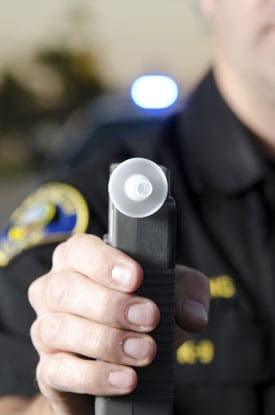Steps You Can Take to Escape a Situation Involving Domestic Violence
 When you are the victim of domestic violence, you can feel trapped, fearful that any action you take will only lead to more abuse. Here are some things you can do to get out of an abusive situation.
When you are the victim of domestic violence, you can feel trapped, fearful that any action you take will only lead to more abuse. Here are some things you can do to get out of an abusive situation.
Call the Police
Whenever you have been the victim of domestic violence, you can always call police (or 911). It can be a risky act, though, as it may lead to an immediate escalation in domestic violence, and it can take law enforcement officers some time to reach you. In addition, most police will tell you that, if they are called to a situation of alleged domestic violence, somebody will go to jail.
Ask the Court for a Restraining Order
The courts have the authority to issue an order prohibiting a person from contacting you or coming within a certain distance of you. Unfortunately, the courts do not have the resources to enforce these orders. If you get a restraining order and your ex violates it, you must notify authorities, which can often put you at greater risk.
Contact a Victim’s Advocate
In most states, domestic violence victim’s advocates are available to assist persons subjected to domestic abuse. A victim’s advocate will help you find counseling, walk you through the process of getting a restraining order, come with you to meet with police officers or when you go to court, and help you understand your options. A victim’s advocate will likely be able to help you find a shelter, so that you can escape the cycle of violence.
Contact the Law Office of Joanne E. Kleiner & Associates
For an appointment with an experienced Pennsylvania high net worth divorce attorney, contact our office online or call us at 215-886-1266. Let us use our experience, skill, knowledge and resources to help you make informed and effective decisions.
 In 2007, a Minnesota couple spent an excruciating couple of months in limbo, with the adoption of a daughter from China help up because of a past DWI charge against the adoptive father. The mother had already traveled to China and had custody of the adopted daughter, but was stuck in China when the USCIS denied her return entry with the child, based on the father’s DUI charge. The father had completed all court-required rehabilitation and had passed a second home study.
In 2007, a Minnesota couple spent an excruciating couple of months in limbo, with the adoption of a daughter from China help up because of a past DWI charge against the adoptive father. The mother had already traveled to China and had custody of the adopted daughter, but was stuck in China when the USCIS denied her return entry with the child, based on the father’s DUI charge. The father had completed all court-required rehabilitation and had passed a second home study. Unfortunately, divorce can lead to threats and violence. If you believe your soon-to-be ex-spouse poses a threat to you or your children, a protection order should be requested immediately. In Pennsylvania, requesting a protection order is relatively easy and straightforward. First, you need to go to your local courthouse and ask to see a judge to request a protection order. Next, you will be asked to provide information as to why your ex poses a threat to you or your children. At this point in time, you do not need to provide eyewitnesses or evidence; rather, you need only tell the judge your story and explain why you believe you or your children are in danger.
Unfortunately, divorce can lead to threats and violence. If you believe your soon-to-be ex-spouse poses a threat to you or your children, a protection order should be requested immediately. In Pennsylvania, requesting a protection order is relatively easy and straightforward. First, you need to go to your local courthouse and ask to see a judge to request a protection order. Next, you will be asked to provide information as to why your ex poses a threat to you or your children. At this point in time, you do not need to provide eyewitnesses or evidence; rather, you need only tell the judge your story and explain why you believe you or your children are in danger. While divorce alone does not affect your credit score, there are a number of financial and legal issues involved that can. First, if you and your spouse have joint credit cards, co-signed loans, or opened a line of credit together, you are both responsible for them. Here, it’s important to remember that the terms of your
While divorce alone does not affect your credit score, there are a number of financial and legal issues involved that can. First, if you and your spouse have joint credit cards, co-signed loans, or opened a line of credit together, you are both responsible for them. Here, it’s important to remember that the terms of your